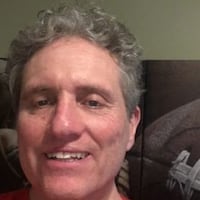Today’s interviewee is Jim Rhodes, South Gwinnett football’s public address announcer since 1976. Rhodes, 75, will work his final game Friday in the Comets’ opener against Pebblebrook. Rhodes also has been the announcer for the school’s basketball, baseball and softball teams over the years. In 1988, he was in an automobile accident that left him paralyzed from the chest down. But he didn’t miss announcing a home game for 45 years. The press box at the football and baseball stadiums are named in Rhodes’ honor.
Jim Rhodes, South Gwinnett P.A. announcer
1. How did you get started doing P.A. work at South Gwinnett? “When I first moved to Snellville in ‘76, my son was just beginning T-ball, and I met coach and athletic director John Sawyer. We were talking and somehow the conversation turned to South baseball. He was talking about needing a regular announcer that could be at the majority of the games, so I did it that spring. Then he asked me about football in the fall. I don’t think I was very good in the beginning, but I did get better. I learned to stretch out certain words to create extra excitement. Some examples, ‘Heeeere come the Comets!’ and ‘Oh, Myyyy’ and ‘You’re in Comet country!’ I learned early on that the stars were on the field, and those young men and women enjoyed hearing their names and hearing them pronounced right. The parents really enjoyed that part too.”
2. How did you manage to never miss a football game for 45 years? “There were some close calls, but I was lucky. I got transferred to Greenville, S.C., with my job, but I agreed to drive back every Friday. I had some personal issues. I went through a divorce, and my son stayed in Snellville and played football, so I could announce and see him play also.
“In 1988, on a Saturday night after the final home game of the year, I had an automobile accident coming home from work. I was injured pretty seriously, paralyzed from the chest down with broken ribs and shoulder and a collapsed lung. I stayed in the hospital for three months and was in a wheelchair when I got out. I thought my announcing days were over, but I was wrong. Members of the touchdown club said they would get me up the stairs to announce. They made that happen, so when the season started, they carried me up the stairs to the press box. The basketball tipoff club decided they wanted me to announce their home games also, so they built me a platform to sit on in the old gym.”
3. What are some of your best memories of players, games or teams? “From the time I started announcing football in the ‘70s and ‘80s, we were not a football powerhouse. Our team made a turnaround in the early ‘90s. Head coach Larry Williamson installed the wing-T offense, and we were small but fast, and those big teams couldn’t handle that misdirection offense. We made the playoffs [in 1993] and started winning and upsetting higher-ranked teams. We traveled down to Warner Robins, and they were heavy favorites. Their fans didn’t give us much of a chance, but their attitude changed when we upset them. We made the state finals that year playing against Dunwoody. They did beat us, but it was a good game.
“One notable player was David Greene, who went on to be a star at UGA and went to a Super Bowl with Seattle in the NFL. During the ‘90s we had other teams that excelled which I was the announcer for these sports. Longtime basketball coach Mike Allison had some of the most exciting basketball in girls history. In 1995 they went undefeated, 33-and-0.
“Along came the 2000s, and we were not doing as good in boys basketball, so we brought in an Indiana coach named Roger Fleetwood, and along came Louis Williams and Mike Mercer. The excitement began. That basketball team was unreal, and Louis and the boys were great. The gym was packed. We had fire marshals at the door to make sure we didn’t have too many fans. We had many hip-hop stars that came to the games. We were ranked in the top five in the nation for three years. We played on national TV several times, and I got to announce those games and had my picture on the broadcast several times.”
4. What has being South Gwinnett’s P.A. announcer meant to you all these years? “It probably helped save my life. For a while after my accident, I was pretty down. They wanted me to keep announcing, and they carried me up those steps, and I got a little happier. I realized there was life even in a wheelchair. I’ve spoken to patients down at Shepherd Spinal Center, and I tell them that it may not seem like there’s anything out there for you, but there is. Before my accident, I played softball and did a lot of coaching. I was very active. I was announcing before I got injured, and then after, I was announcing even more because I wasn’t working, so I had time to do the four sports. They needed me. I was living by myself, my son was with his mother, so I got wrapped up in the whole South everything. If I hadn’t gotten involved in this, I wouldn’t be talking to you now. I’m not saying I was considering suicide, but I wouldn’t have been as happy, and I wouldn’t have developed these friendships.”
Produced by Georgia High School Football Daily, a free e-mail newsletter. To join the mailing list, click here.
About the Author
The Latest
Featured


